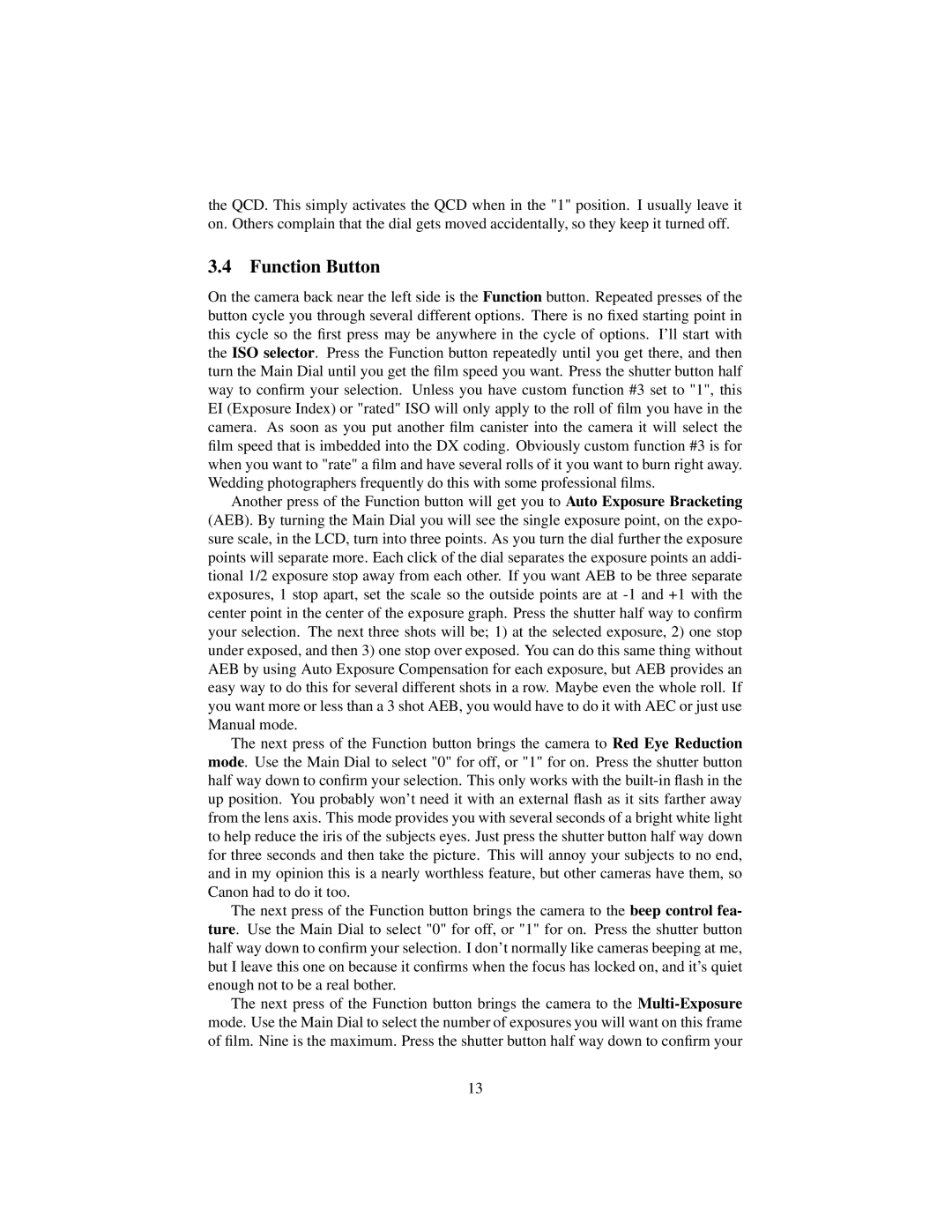the QCD. This simply activates the QCD when in the "1" position. I usually leave it on. Others complain that the dial gets moved accidentally, so they keep it turned off.
3.4 Function Button
On the camera back near the left side is the Function button. Repeated presses of the button cycle you through several different options. There is no fixed starting point in this cycle so the first press may be anywhere in the cycle of options. I'll start with the ISO selector. Press the Function button repeatedly until you get there, and then turn the Main Dial until you get the film speed you want. Press the shutter button half way to confirm your selection. Unless you have custom function #3 set to "1", this EI (Exposure Index) or "rated" ISO will only apply to the roll of film you have in the camera. As soon as you put another film canister into the camera it will select the film speed that is imbedded into the DX coding. Obviously custom function #3 is for when you want to "rate" a film and have several rolls of it you want to burn right away. Wedding photographers frequently do this with some professional films.
Another press of the Function button will get you to Auto Exposure Bracketing (AEB). By turning the Main Dial you will see the single exposure point, on the expo- sure scale, in the LCD, turn into three points. As you turn the dial further the exposure points will separate more. Each click of the dial separates the exposure points an addi- tional 1/2 exposure stop away from each other. If you want AEB to be three separate exposures, 1 stop apart, set the scale so the outside points are at
The next press of the Function button brings the camera to Red Eye Reduction mode. Use the Main Dial to select "0" for off, or "1" for on. Press the shutter button half way down to confirm your selection. This only works with the
The next press of the Function button brings the camera to the beep control fea- ture. Use the Main Dial to select "0" for off, or "1" for on. Press the shutter button half way down to confirm your selection. I don't normally like cameras beeping at me, but I leave this one on because it confirms when the focus has locked on, and it's quiet enough not to be a real bother.
The next press of the Function button brings the camera to the
13
